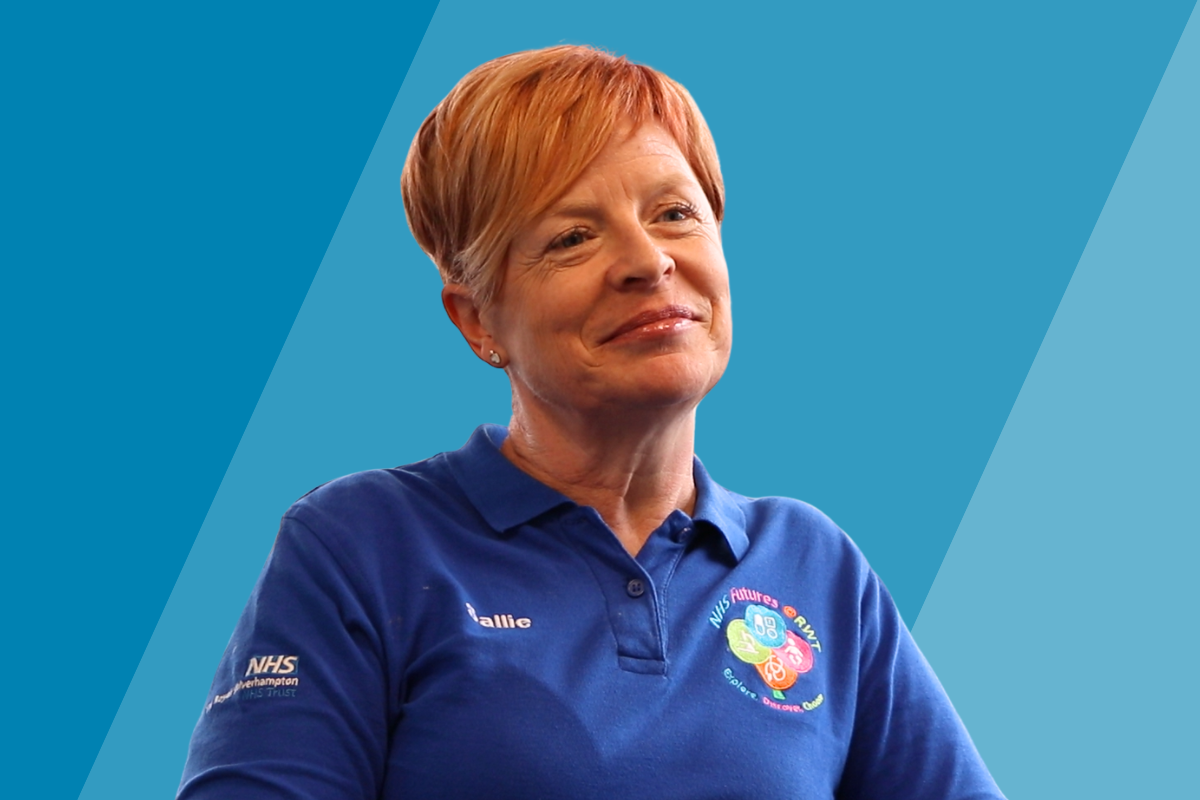Kickstart 30 job threshold removed from 3rd Feb 2021 – Over 120,000 jobs created so far

The 30 job threshold for Kickstart is being removed from 3rd February 2021 and over 120,000 jobs have been created so far via the £2 Billion 16-24 year old employability programme.
MORE THAN 120,000 jobs for 16-24 year olds have now been created through the Government’s flagship Kickstart Scheme, it can be revealed today, as ministers have urged more employers to get involved.
The scheme, which has been underway since September, is helping to put young people who have been some of the hardest hit by the economic impact of the pandemic on the first rung of their career ladder. The start dates for these jobs vary but will all begin this year.
The Government will make it even simpler for employers of all sizes to benefit from joining the scheme by removing the limit requiring they create a minimum of 30 vacancies to apply directly. To ensure all job placements continue to be of a high quality, the Government will continue to apply rigorous checks on training support and finances.
 Secretary of State for Work and Pensions Thérèse Coffey said:
Secretary of State for Work and Pensions Thérèse Coffey said:
“Kickstart has moved up a gear and I encourage employers to join us and invest in the next generation of talent by joining our Kickstart scheme.
“By removing the threshold of a minimum 30 jobs for direct applications, we are making it even simpler to get involved.
“Now is the time to prepare for post-lockdown placements and employers will now have a choice to apply direct or through one of our 600 fantastic Kickstart gateways who may be locally connected or sector-specific providing that tailored support.”
 Chancellor Rishi Sunak said:
Chancellor Rishi Sunak said:
“Young people are among the hardest hit in times like these, which is why we’re doing everything we can to ensure they’re not left without hope and opportunity.
“The Kickstart Scheme is central to this. Since opening for applications last Autumn, we’ve worked with some of the most exciting companies to create more than 120,000 Kickstart jobs – which is a huge vote of confidence in our young people at a challenging time.
“With £2 billion available and no limit on the number of places, it’s now easier than ever for businesses across Great Britain to take part. Join us as we harness the talents of the new generation of kickstarters.”
For those employers who want support to get involved with the scheme – they can continue to partner with one of our many Gateway organisations such as a Local Authority or Chamber of Commerce. Gateways can help provide a local connection and the necessary wrap around support which is a hallmark of Kickstart. DWP welcomes existing Gateways continuing to apply to add more jobs and employers over the life of the scheme.
Since applications opened in September, there are now more than 600 approved gateways covering many sectors and all parts of the country.
Referrals to the Kickstart Scheme will run until December 2021 and is expected to create hundreds of thousands of new job placements.
New announcements from DWP on Kickstart:
- From 3 February 2021, employers will be able to apply to the Kickstart Scheme without a minimum threshold of 30 jobs.
- With so many Gateways already approved, DWP are closing applications for new Gateways this week – but businesses that wish to sign up with the support of an existing Gateway will still be able to do so.
Sector Response to the Kickstart announcements:
Responding to the announcement that the UK government is to change the structure of its Kickstart scheme application process, Craig Beaumont, Chief of External Affairs at the Federation of Small Businesses (FSB), said:
“Kickstart is a vital scheme to help young people suffering unemployment to gain workplace experience and develop new skills at a time when job opportunities are in short supply. Small businesses are ideal environments to develop and nurture the talent of tomorrow’s workforce.
“From the outset, back in September, FSB pressed the government for a direct route for small businesses with one or two kickstart roles to apply. That this finally looks possible is positive, and better late than never.
“At the same time, it is imperative that the government focuses immediately on unsticking the blockages stopping young people starting placements with those small businesses already in the system.
“There are many thousands of roles already approved for small firms through the intermediary route, which until now has been the only way to access the scheme for a business offering fewer than 30 placements.
“Despite headline figures, delays in the current system have meant only a small number of roles have gone to JobCentre Plus and even fewer young people have yet made it through to work in a small business. The government must scale this, and fast.
“The longer a young person goes without workplace experience, the worse it is for both their wellbeing and future job prospects. The focus must be firmly on getting good quality placements in ready-and-willing small businesses up and running swiftly. The single best way for a young person to get a good start in the world of work is through real-world experience.
“We are pleased that the Department for Work and Pensions has reaffirmed its support for the continuation of FSB’s own Kickstart gateway alongside intermediary provider Adecco Working Ventures. This ensures a plurality of options for small businesses, including those who require professional help to make sure placement holders receive a gold-plated level of support and development.
“It is in small businesses where the overwhelming number of jobs are to be found as we look towards economic recovery. Development of both Kickstart and future employment support must be designed from the outset with a firm focus on helping small employers do what they do best – getting people into work and serving their communities.”
The Co-Chairs of the Young Employment Group (YEG) highlight the importance of ensuring young people receive quality support and work placement experiences, and call for the Government to commit to extending the scheme past the December application deadline.
The YEG co-chairs are: Samantha Windett (Director of Policy, Impetus), Tony Wilson (Director, Institute for Employment Studies), Richard Rigby (Head of Policy and Public Affairs, The Prince’s Trust), Laura-Jane Rawlings (Chief Executive Officer, Youth Employment UK), Anna Smee (Chief Executive Officer, Youth Futures Foundation).
“Today the Government announced a removal of the minimum number of job placements an employer must create to apply to the Kickstart Scheme.
“Smaller employers may need help in knowing where to turn to for quality employability support, to reduce the administrative burden on SMEs, and spend the additional £1500 effectively to help move young people into sustained work. The Government also needs to ensure that the placements being approved are quality opportunities for young people in the geographies and sectors where they are most needed.
“The latest numbers of young people on Kickstart show that many employers have had no choice but to delay their placements given the continuing disruption of lockdowns. Logistically, it will be very challenging for businesses to meet the intended number of placements in such a reduced period. Extending Kickstart beyond December will give all employers engaged in the scheme the time they need to fulfil their plans and offer thousands more young people the opportunity of employment.”
 Elizabeth Taylor, CEO, ERSA – Employment Related Services Association said
Elizabeth Taylor, CEO, ERSA – Employment Related Services Association said
“The employment support sector has worked diligently on Kickstart developing opportunities through community based Gateways.
“ERSA forums with 325 attendees have developed a community of good practice and shared expertise and knowledge drawn from the collective experience of getting young people into sustained employment. A key theme has been the wrap around support to make sure young people take up the right opportunity, get the right in work support, and stay in work after the Kickstart 6 months. For many organisations there has been 5 months investment in making Kickstart the best it can be whilst waiting for DWP to process applications.
“Many recommendations from this group of experts have been ignored, but the Kickstart Forum has continued, and has a bank of approved Gateway offers and portfolios of relevant quality opportunities. This experience should be harnessed and applauded – we are here to make Kickstart work.”
 Ronel Lehmann, Founder and Chief Executive, Finito, The Employability Experts said:
Ronel Lehmann, Founder and Chief Executive, Finito, The Employability Experts said:
“There have been many demands that the Government is not doing enough to get young people into meaningful employment. Today’s news shows that Kickstart has accelerated forward much faster with automatic transmission. I applaud Rishi Sunak, evolution not revolution, always brings results. Removing the cap on the threshold will spur on the initiative.”
 Association of Employment and Learning Providers (AELP) CEO, Jane Hickie said:
Association of Employment and Learning Providers (AELP) CEO, Jane Hickie said:
“With less than 2,000 young people actually starting a placement and a £2bn budget behind the programme, it is hardly a surprise that the threshold has been lifted.
“AELP’s concern is that the government’s need for Kickstart to be a success is crowding out any concerted drive to create more apprenticeships where the financial incentives for employers are less attractive. Actual training is still not required on Kickstart and if we are really serious on helping young people gain sustainable employment during this recession, ministers need to level up the employer incentives for apprenticeships where high quality training is required under each sector standard.”
 Stephen Evans, Chief Executive of Learning and Work said:
Stephen Evans, Chief Executive of Learning and Work said:
“Anything that makes it easier for employers to engage in offering young people a job is welcome, and DWP are to be commended for the scale of their ambition and pace of getting Kickstart underway. Plus employers can still use gateways if they wish.
“But we need to refocus on the purpose of Kickstart. For me, it’s about making sure young people at risk of long-term unemployment get experience of work through a job and support to improve their skills and find work once Kickstart support ends. This switch moves us more toward a wage subsidy model that’s relatively generous but more complex to access than previous schemes. Some young people risk missing out on the training and job search support they will need to find a job after Kickstart.
“More broadly, the Government needs to give greater thought to how all of these schemes fit together. That’s why we’ve argued for a Youth Guarantee that ensures every 16-24 year old is offered a job, apprenticeship or training place.”
Responding to the news of the uptake of the Government’s Kickstart Scheme for young people, Jo Bibby, Director of Health at the Health Foundation said:
“As part of our ongoing COVID-19 impact inquiry, we’ve seen that young people have been disproportionately affected by the pandemic, as they are more likely to have experienced a sustained reduction in pay, been put on furlough or let go from their jobs all together.
“Employment and income are some of the essential building blocks that support young people to live a healthy life, as they foster feelings of independence, confidence and resilience. The importance of this cannot be understated, and so it is critical that the government scales up the Kickstart programme and places young people at the heart of their COVID-19 economic recovery plans. The country’s future prosperity depends on the health and wellbeing of this age group. We cannot allow the pandemic to scar the Lockdown Generation for decades to come.”










Responses